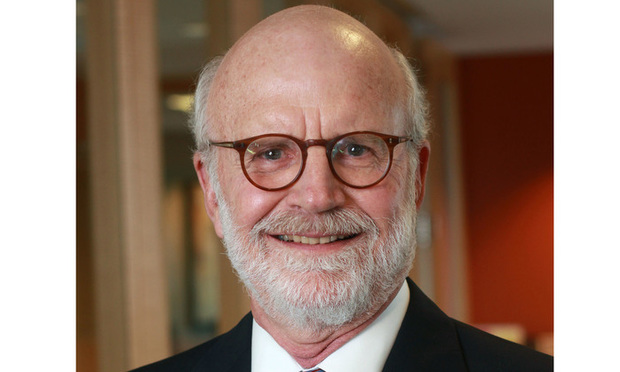Settlement Removes Barriers for Disabled State Prison Inmates
The Florida Justice Institute helps secure a settlement in a lawsuit claiming institutionalized discrimination against disabled prisoners held by the state Department of Corrections.
December 11, 2017 at 06:00 AM
2 minute read

Randall Berg
Florida Justice Institute
The state Department of Corrections settled a lawsuit claiming the prison agency routinely violated the Americans with Disabilities Act and Rehabilitation Act in its treatment of inmates.
The lawsuit filed last year by the Florida Justice Institute and Morgan & Morgan on behalf of Disability Rights Florida alleged more than 30 prisoners who are deaf, blind or in wheelchairs were victims of discrimination.
Corrections officials also were charged with refusing to allow disabled prisoners to participate in jobs, services and programs available to others due to their disabilities.
A 328-page settlement filed in July in Tallahassee federal court requires the state to provide sign-language interpreters for deaf prisoners and remove architectural barriers for inmates in wheelchairs within four years.
Randall Berg, executive director of the Florida Justice Institute, called the settlement “a huge decision” and “a game changer” for disabled inmates.
The agency has a “designated ADA coordinator” and “has already begun to work on many of the identified issues within existing funding,” corrections spokeswoman Michelle Glady said when the agreement was announced.
The lawsuit claimed deaf prisoners waited years for hearing aid repairs and replacements and were not provided American Sign Language interpreters at medical appointments. They also were unable to hear announcements, causing them to miss meals and other daily events.
Corrections officials also failed to provide or maintain wheelchairs and failed to assign other inmates as “pushers” to wheelchair-bound prisoners.
The settlement agreement came after five months of mediation between representatives of the inmates and the state, lawyers said.
Under the settlement, corrections officials agreed to house disabled inmates in about 20 ADA-compliant prisons.
Disabled inmates will be evaluated when they enter the prison system and get annual reevaluations.
The agreement should provide disabled inmates “with some modicum of ability to take courses, do programs and get religious services on the same level as persons who do not have any disabilities,” Berg said.
This content has been archived. It is available through our partners, LexisNexis® and Bloomberg Law.
To view this content, please continue to their sites.
Not a Lexis Subscriber?
Subscribe Now
Not a Bloomberg Law Subscriber?
Subscribe Now
NOT FOR REPRINT
© 2025 ALM Global, LLC, All Rights Reserved. Request academic re-use from www.copyright.com. All other uses, submit a request to [email protected]. For more information visit Asset & Logo Licensing.
You Might Like
View All
University of Florida Drops Title IX Investigation Against Basketball Head Coach
2 minute read


Top Governor's Office Executives Drafted Letters Threatening Florida TV Stations Over Abortion Ads
3 minute readTrending Stories
- 1Legal Restrictions Governing Artificial Intelligence in the Workplace
- 2Failure to Adequately Inform Patients
- 3'FTX' One Year Later: The Impact on Examiner Practice in Bankruptcy Courts
- 4Gen AI Legal Contract Startup Ivo Announces $16 Million Series A Funding Round
- 5DOJ's Flawed Thinking in Challenging HPE-Juniper Merger
Who Got The Work
J. Brugh Lower of Gibbons has entered an appearance for industrial equipment supplier Devco Corporation in a pending trademark infringement lawsuit. The suit, accusing the defendant of selling knock-off Graco products, was filed Dec. 18 in New Jersey District Court by Rivkin Radler on behalf of Graco Inc. and Graco Minnesota. The case, assigned to U.S. District Judge Zahid N. Quraishi, is 3:24-cv-11294, Graco Inc. et al v. Devco Corporation.
Who Got The Work
Rebecca Maller-Stein and Kent A. Yalowitz of Arnold & Porter Kaye Scholer have entered their appearances for Hanaco Venture Capital and its executives, Lior Prosor and David Frankel, in a pending securities lawsuit. The action, filed on Dec. 24 in New York Southern District Court by Zell, Aron & Co. on behalf of Goldeneye Advisors, accuses the defendants of negligently and fraudulently managing the plaintiff's $1 million investment. The case, assigned to U.S. District Judge Vernon S. Broderick, is 1:24-cv-09918, Goldeneye Advisors, LLC v. Hanaco Venture Capital, Ltd. et al.
Who Got The Work
Attorneys from A&O Shearman has stepped in as defense counsel for Toronto-Dominion Bank and other defendants in a pending securities class action. The suit, filed Dec. 11 in New York Southern District Court by Bleichmar Fonti & Auld, accuses the defendants of concealing the bank's 'pervasive' deficiencies in regards to its compliance with the Bank Secrecy Act and the quality of its anti-money laundering controls. The case, assigned to U.S. District Judge Arun Subramanian, is 1:24-cv-09445, Gonzalez v. The Toronto-Dominion Bank et al.
Who Got The Work
Crown Castle International, a Pennsylvania company providing shared communications infrastructure, has turned to Luke D. Wolf of Gordon Rees Scully Mansukhani to fend off a pending breach-of-contract lawsuit. The court action, filed Nov. 25 in Michigan Eastern District Court by Hooper Hathaway PC on behalf of The Town Residences LLC, accuses Crown Castle of failing to transfer approximately $30,000 in utility payments from T-Mobile in breach of a roof-top lease and assignment agreement. The case, assigned to U.S. District Judge Susan K. Declercq, is 2:24-cv-13131, The Town Residences LLC v. T-Mobile US, Inc. et al.
Who Got The Work
Wilfred P. Coronato and Daniel M. Schwartz of McCarter & English have stepped in as defense counsel to Electrolux Home Products Inc. in a pending product liability lawsuit. The court action, filed Nov. 26 in New York Eastern District Court by Poulos Lopiccolo PC and Nagel Rice LLP on behalf of David Stern, alleges that the defendant's refrigerators’ drawers and shelving repeatedly break and fall apart within months after purchase. The case, assigned to U.S. District Judge Joan M. Azrack, is 2:24-cv-08204, Stern v. Electrolux Home Products, Inc.
Featured Firms
Law Offices of Gary Martin Hays & Associates, P.C.
(470) 294-1674
Law Offices of Mark E. Salomone
(857) 444-6468
Smith & Hassler
(713) 739-1250






